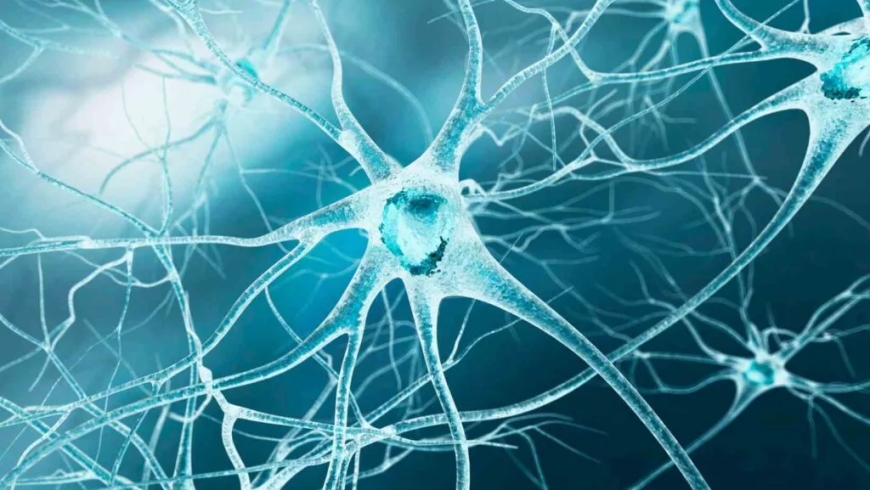Numbness or Tingling? Know When to Worry | Nerve Health Awareness
Numbness or tingling could signal a serious nerve issue. Learn why early diagnosis matters and consult the Best Neurologist in Delhi for expert care.

Have you ever experienced a sudden tingling in your hands, legs, or face? Or felt like your limbs “fell asleep” for no reason? Most people dismiss these as minor annoyances. But when numbness or tingling becomes frequent or persistent, it may point to a deeper neurological issue.
This article dives into the importance of nerve health awareness, the causes of tingling sensations, and when it’s time to consult the Best Neurologist in Delhi for a comprehensive evaluation.
What Is Numbness or Tingling?
Numbness is a loss of sensation, while tingling (also called paresthesia) feels like pins and needles. These symptoms can occur anywhere in the body but are most common in the:
-
Hands and fingers
-
Arms and legs
-
Feet and toes
-
Face and scalp
Occasional tingling after sitting in one position too long is usually harmless. However, frequent or unexplained episodes are often signs of an underlying nerve issue.
Why Nerve Health Awareness Matters
Your nerves act as the communication network between your brain and body. When nerves are irritated, compressed, or damaged, signals may misfire—causing numbness, tingling, pain, or even muscle weakness.
Ignoring these early symptoms may allow conditions to worsen, leading to permanent nerve damage or mobility issues.
Common Causes of Numbness and Tingling
Here are some medical conditions that can trigger these symptoms:
✅ 1. Peripheral Neuropathy
Often caused by diabetes, peripheral neuropathy damages the nerves in your hands and feet.
Symptoms:
-
Burning or tingling sensation
-
Loss of feeling
-
Difficulty walking or gripping objects
✅ 2. Carpal Tunnel Syndrome
Compression of the median nerve in your wrist leads to tingling in the fingers—especially the thumb, index, and middle fingers.
Risk factors: Repetitive hand movements, typing, wrist injuries
✅ 3. Cervical or Lumbar Disc Issues
A herniated disc in the neck or lower spine may press on nearby nerves.
Symptoms:
-
Radiating pain down arms or legs
-
Weakness or numbness
-
Reduced mobility
✅ 4. Multiple Sclerosis (MS)
MS affects the brain and spinal cord, often presenting with early signs like numbness and tingling.
Watch for:
-
Episodes of blurred vision
-
Muscle stiffness
-
Balance problems
✅ 5. Stroke or Transient Ischemic Attack (TIA)
Sudden numbness, especially on one side of the body, may signal a stroke—requiring immediate emergency care.
Other signs:
-
Facial droop
-
Slurred speech
-
Loss of coordination
✅ 6. Vitamin Deficiencies
Deficiency in vitamin B12, vitamin D, or magnesium can impair nerve function.
Symptoms:
-
Tingling in the hands and feet
-
Fatigue
-
Mood changes
✅ 7. Anxiety or Panic Attacks
Hyperventilation and poor circulation during anxiety episodes can cause tingling in the fingers and lips.
Note: Chronic episodes still need medical evaluation to rule out other causes.
✅ 8. Autoimmune Diseases
Conditions like lupus or Guillain-Barré syndrome can attack the nervous system.
When Should You Worry?
Not all tingling is dangerous—but here’s when to take it seriously:
-
Tingling lasts more than a few minutes
-
It happens regularly or worsens over time
-
It’s accompanied by weakness or pain
-
You notice balance problems or visual disturbances
-
Only one side of the body is affected
Why Early Evaluation Is Key
Prompt diagnosis helps:
-
Prevent permanent nerve damage
-
Manage chronic conditions (e.g., diabetes, MS) effectively
-
Rule out serious issues like stroke or tumors
-
Improve outcomes through early intervention
That’s why experts strongly recommend getting checked by a neurologist if you notice consistent symptoms.
When to Consult a Specialist
If you’ve ruled out minor causes (like temporary pressure on nerves) and symptoms persist, it’s time to seek expert help.
Dr. Chandril Chugh, the Best Neurologist in Delhi, provides comprehensive nerve evaluations using:
-
Physical and neurological exams
-
EMG/NCS (electromyography and nerve conduction studies)
-
MRI or CT scans for spinal issues
-
Blood tests to check for deficiencies or autoimmune conditions
He specializes in treating chronic nerve disorders, spine problems, and early signs of serious neurological diseases.
What to Expect During Your Visit
The neurologist will:
-
Review your symptom history
-
Test your reflexes, muscle strength, and coordination
-
Recommend appropriate diagnostic tests
-
Discuss a personalized treatment plan
Treatment Options
Depending on the cause, treatment may include:
✅ 1. Medications
-
Anti-inflammatory drugs
-
Nerve pain medications
-
Vitamin supplements
-
Immunotherapy (for autoimmune-related causes)
✅ 2. Physical Therapy
To improve posture, movement, and strength—especially for nerve compression or spine issues.
✅ 3. Lifestyle Adjustments
-
Quitting smoking
-
Managing blood sugar (for diabetics)
-
Reducing repetitive motion injuries
-
Incorporating nerve-friendly foods (rich in B12 and omega-3)
FAQs About Nerve Symptoms
Is tingling in hands a sign of stroke?
It could be—especially if it occurs suddenly with other symptoms like facial drooping and slurred speech.
Can anxiety cause numbness?
Yes, hyperventilation and muscle tension during anxiety can cause temporary tingling, but recurrent symptoms still require evaluation.
Is tingling in feet dangerous?
It depends on the cause. Persistent tingling may signal diabetes, nerve damage, or spinal problems.
What tests help diagnose nerve problems?
EMG/NCS, MRI, CT scans, and blood tests are commonly used.
Final Thoughts: Don’t Ignore What Your Body Is Telling You
Numbness or tingling may seem harmless, but it’s often your body’s way of alerting you to a nerve-related issue. Catching the problem early could make all the difference in preventing long-term complications.

























































































